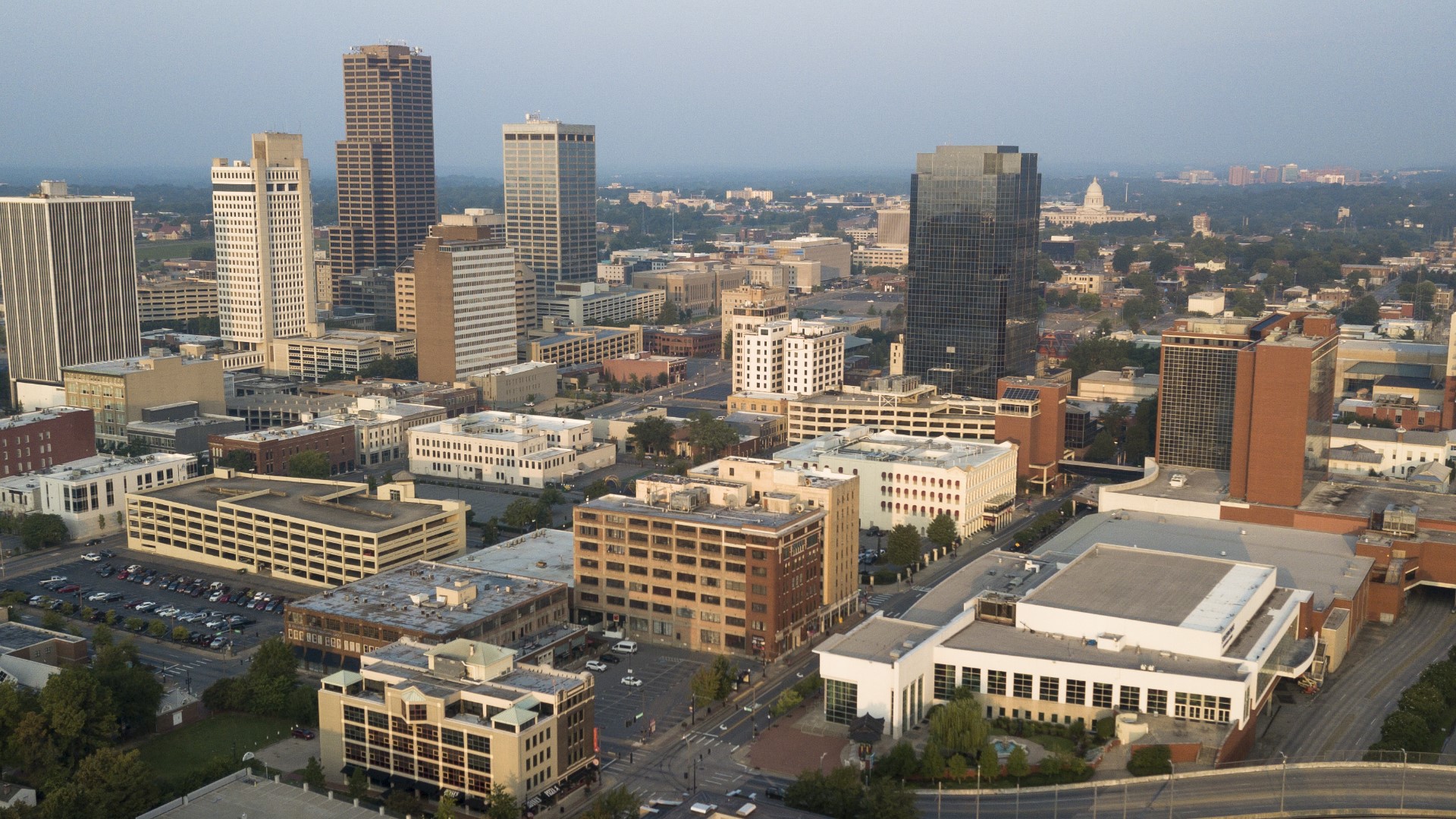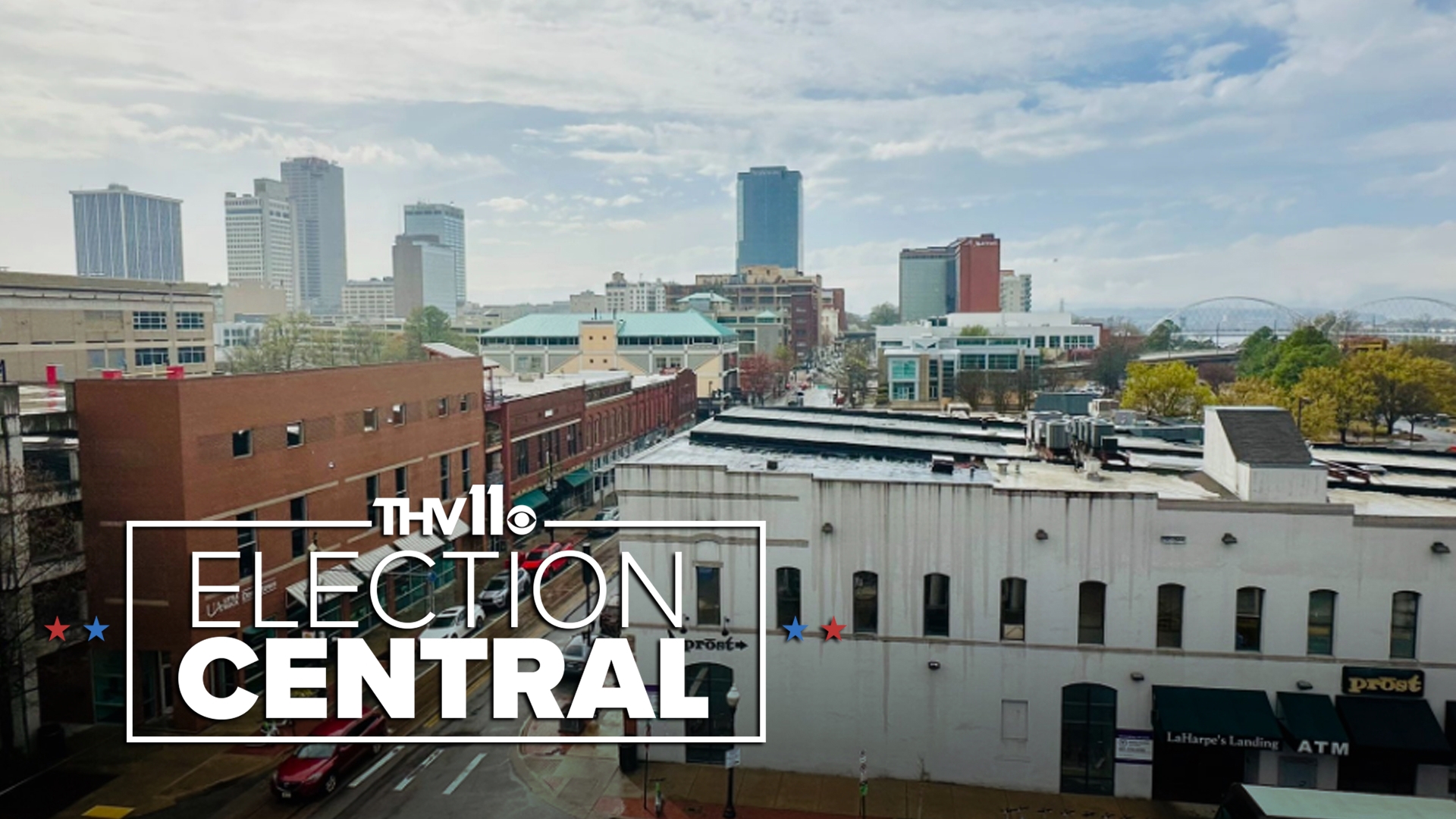Here's what the Little Rock sales tax proposal would fund
If you live in Little Rock, here is what the penny sales tax proposal is looking to fund if it is approved by voters on November 5.

Little Rock residents will vote on whether to approve or reject a sales tax increase that Mayor Frank Scott Jr. hopes to implement after a 2021 penny tax failed to pass.
The 2024 effort to approve a one-cent sales tax has not only the support of Mayor Scott but the Little Rock Board of Directors support this version, which is known as the "Results for The Rock" proposal.
The board of directors approved the proposal for the ballot in July after Scott held several meetings in different communities to show what the tax could do for the city. The only members who did not vote for it were Joan Adcock who voted present and Ken Richardson who was absent.
What's on the ballot?
When voters go to cast their ballot they will see the sales tax proposal broken up into two different questions.
The first question will ask voters to approve or deny a permanent 3/8-cent tax that will begin on April 1, 2025 and will be used for "general operational purposes."
The second question asks voters to approve or deny a 5/8-cent tax that would be used for "general capital purposes." If approved, that tax would begin on April 1, 2025 and expire after 10 years.
Where is the money going?
Mayor Scott has championed the sales tax and has said it contributes to his four pillars; public safety, public infrastructure, parks & recreation, and port & economic development.
If the tax proposal is approved by residents, the city is projecting around $650 million in revenue over a 10-year period that would go to various projects.
Parks funding
Around 45% of the proposed funding would go to the Parks & Recreation for improvements as well as two sports complexes and implementation of the zoo master plan.
The master plan for the zoo includes upgrading outdated facilities and equipment as well as improving the care of the animals.
Little Rock currently has 63 parks it maintains and the proposal would provide $14 million to Hindman and War Memorial parks for improvements. Scott has long proposed the War Memorial area could emulate Central Park in New York City.
The city has proposed that Hindman Park could be re-imagined to focus on disc golf and mountain bike trails, both of which have a burgeoning community in other parts of Arkansas.
Part of Scott's pitch has been that this type of investment into the city parks will attract both millennials and older generations alike, who he said make relocation decisions based on quality of life and the place.
The sports complexes, one indoor and one outdoor, would account for $123 million of the parks funding allocation. The indoor sports complex would receive $64 million and would be near East End in downtown while the outdoor sports complex is expected to get $59 million and be located near the Otter Creek neighborhood.
A city proposal shows that indoor venue would include courts that can be used for basketball or volleyball and the ability to accommodate for an event that can seat up to 4,000 people. The facility is expected to be around 170,000 square feet.
The outdoor venue would be around 55 acres and includes fields that be used for baseball, football, and soccer.
Public infrastructure
The city would invest $137 million over a 10-year period toward public infrastructure, which accounts for 21% of the total proposed funding.
Officials will use $80 million to help improve the city's streets, sidewalks, and drainage "based on priority needs." Another $48 million would go to ongoing resurfacing and sidewalk projects over the next decade.
The city would also use $5 million for infrastructure projects in certain community south of I-630 or east of I-30.
"Street construction costs have doubled in the last decade," Scott said, "so this investment is essential as we prioritize the 'nuts and bolts' of city government."
Public safety
Most of the $113 million going to public safety efforts is focused on funding for the real-time crime center and replacing police, fire department, and code enforcement vehicles.
Police would also be given $15 million to focus more on community policing and the ability to have mental health response teams.
Scott said that public safety is one of the city's "foremost priority" and that this funding will help "supplement the nearly 60% of our annual budget" that goes toward the safety of Little Rock residents.
Other areas
City officials want to focus on the continued expansion of the Little Rock port with $8 million going toward developing nearly a dozen potential project sites that includes 1,000-acre area that Scott hopes could invigorate the economy.
Another $22 million would go to the Economic Development Impact Fund that would allow for land purchasing to help incentivize bigger companies to build facilities at the port.
A total of $30 million will be used to address the homelessness and affordable housing issues. In 2024, the city hired Matthew DeSalvo, its first chief homeless officer and a micro home village is being planned for the Little Rock population.
Support and opposition
The tax proposal has been endorsed by the Little Rock Fraternal Order of Police, the city chapter of the International Association of Fire Fighters, and the Arkansas Democrat-Gazette.
Mayor Scott has called the vote on the tax "extremely important for the future" of the city. He noted that the proposal "incorporates feedback and suggestions from our Board of Directors, department directors, and most importantly, residents of all seven Wards."
The Arkansas Community Organization and Citizens for an Affordable Little Rock have come out against the sales tax proposal.
Retired judge Wendell Griffen has come out against both the 3/8 cent and 5/8 cent proposals, noting that $95 million of the public safety is going toward policing. He also said that spending for policing would increase by nearly $10 million permanently.
Citizens for an Affordable Little Rock, a conservative-led group, has raised over $100,000 to oppose the proposal. Messages sent out by the group to voters claim the penny tax would "fall disproportionately on Little Rock's poor and middle class."


